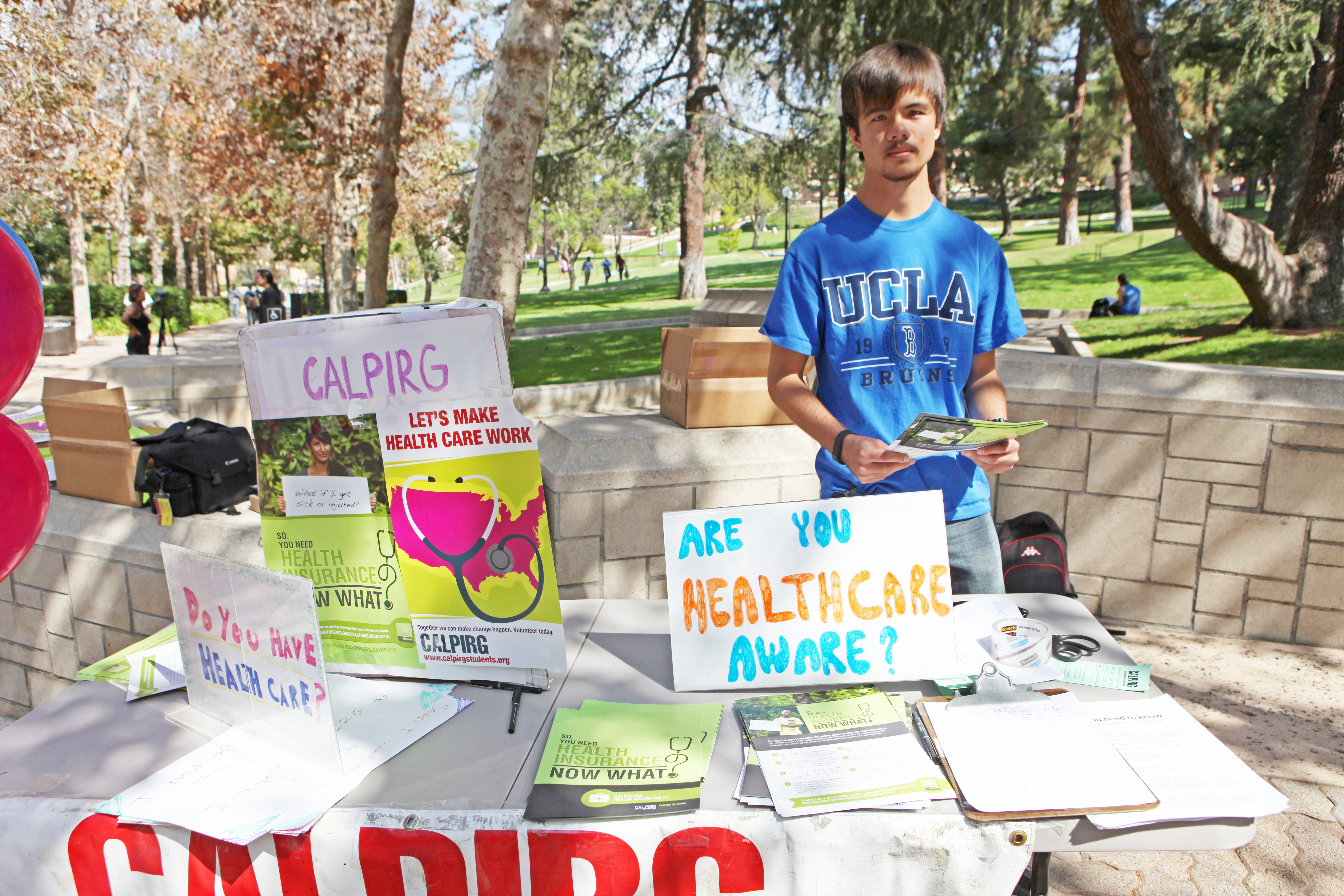Zoey Freedman: CALPIRG campaigning fuels annoyance, not change

CALPIRG Students, a branch of California Public Interest Research Group, holds pledge drives at UCLA and other UC campuses every year to gather funds for their initiatives regarding public interest issues. (Daily Bruin file photo)
By Zoey Freedman
Nov. 21, 2014 7:55 a.m.
Bright orange stickers and people with clipboards serve as a warning sign for UCLA students to steer clear – unless they want to be pressured into pledging California Public Interest Research Group.
CALPIRG Students, a consumer advocacy group that is a branch of CALPIRG, is a nonprofit organization whose mission is to help college students take a stand on initiatives that target prevalent issues like homelessness, the affordability of higher education and global warming. CALPIRG Students has chapters across the state, including at UCLA. Their initiatives include getting California to use solar energy, proposing green public transportation options and making textbooks more affordable.
Professional advocates from CALPIRG strive to represent students not only locally, but also in Sacramento and Washington, D.C., meaning student activism has a greater chance of being recognized officially and legally. But, the CALPIRG advocates at UCLA are approaching students to join causes relevant to students in an unproductive manner.
CALPIRG needs to consider putting on more educational and appealing forums to better engage students in advocacy. Holding informational workshops on their organization and programming on the latest initiatives students can get involved in are just a few examples of ways to improve CALPIRG’s reputation on campus and get more students campaigning for their causes.
UCLA students are constantly harassed on Bruin Walk by clubs and off-campus organizations. CALPIRG advocates have made themselves stand out by their persistence, following students to class until they cave in to signing a pledge to donate $5-10 per academic quarter and/or concede to giving their email address to the CALPIRG representative. This pledge money pays for professional staff like grassroots organizers and advocates in Washington, D.C., and the email addresses are used to inform students about new campaigns and ways to get involved.
Instead of trying to get students to pledge right then and there on Bruin Walk, CALPIRG Students should give students the time and opportunity to educate themselves on the organization and its initiatives before they commit to joining or supporting CALPIRG. This will allow students to actually know what they’re getting themselves into and where their pledge money will be going. Giving students the chance to make an informed choice is the first step to securing supporters who will most likely stay committed.
CALPIRG should consider creating programming for students in order to bring attention and awareness to current campaigns. The CALPIRG Students chapter at UCLA could use the Undergraduate Students Association Council’s programming as a template for how to successfully target students and spread informational easily and effectively.
Last week, USAC put on End Stigma Week to draw attention to the All of Us Campaign, which aims to educate students on mental health and the resources available for dealing with mental health needs. Because USAC put time and money into advertising the week and making it a campus event, students were drawn to the various events and, in attending them, became aware of the campaign.
CALPIRG should do the same with its various campaigns.
Although it’s great to be passionate about a cause, CALPIRG advocates’ aggressive pursuit of pledges and recruits is simply scaring students away from an organization that could greatly benefit them and future generations. The forced nature of the current pledging process can lead many students to want to remove their email address from distribution lists or cancel their pledge later down the road – if not immediately.
Advocacy should be voluntary. If students take it upon themselves to attend a workshop and educate themselves on advocacy rather than feeling manipulated as they’re running late to class, chances are CALPIRG events will see greater student turnout and lower rates of canceled pledges or students wanting to remove their names from email lists. The students who voluntarily attend informational workshops about CALPIRG to learn how to play a role in advocating for initiatives are the ones who will be the most likely to stay involved and make a difference.
Showing students that they have a choice to educate themselves and giving them a chance to decide whether they want to become advocates for powerful initiatives is what will draw students to CALPIRG, rather than driving them away.


